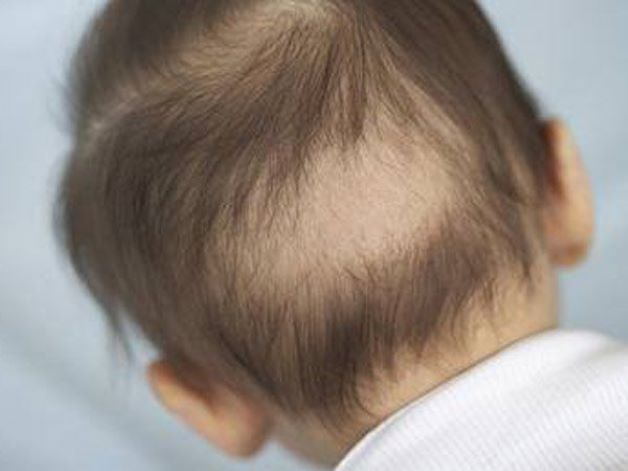Zinc plays an essential role in human health, as it is a necessary component for the activity of many enzymes involved in cell division, body growth, immune system function, and maintaining taste. Particularly for children, zinc is crucial in the early years for ensuring healthy development. Zinc deficiency can lead to serious problems, affecting growth, development, and the function of multiple body systems such as immune, digestive, nervous, endocrine, skeletal, and muscular systems, as well as impacting the process of sexual maturation.

Signs of Zinc Deficiency in Children
The symptoms of zinc deficiency in children can manifest in various ways, depending on each child’s individual characteristics. However, some common signs often seen in children who don’t receive enough zinc include:
If the deficiency is mild to moderate:
In mild to moderate cases, children with zinc deficiency often experience a lack of appetite, combined with other non-specific health issues (general clinical symptoms) typically associated with zinc deficiency, such as:
Nutritional aspects
Children may experience slow weight and height gain, indicating mild to moderate malnutrition.
Digestive and metabolic aspects
Children may show signs of food aversion and reduced food intake, including main food sources like meat and fish. Digestive issues such as mild diarrhea, constipation, nausea, or vomiting may occur.
Psychological aspects
Children may experience sleep disorders like difficulty falling asleep, insomnia, frequent awakenings, or nocturnal crying. Weakness can manifest in headaches, irritability, decreased memory capacity. Children may also go through emotional disorders such as indifference, depression, changes in personality, reduced taste and smell, leading to decreased appetite. Attention deficit issues, developmental delay, and impaired psychomotor development may also appear.
Immune aspects
Children may face recurrent infections such as respiratory tract infections (sore throat, bronchitis, pneumonia), digestive issues like diarrhea, and skin problems like dermatitis, acne, and infections.
Damage to skin and mucous membranes
Children may have symptoms of dry skin, dermatitis on the anterior part of the shins, darkened skin, peeling, and thickened and cracked skin on the heels. In addition, mucous membrane inflammation and tongue inflammation can be observed, with the tongue becoming map-like, which is a common sign. Wounds such as bedsores or ulcers also heal slowly. Children may experience skin allergies, itching around the eyes and ears leading to frequent rubbing, along with thickening of the hair follicles. Nail problems such as malformation, inflammation around the nails, as well as brittle, easily breakable, and falling hair, and even baldness can also be observed.
Injuries related to the eyes
Children may experience sensitivity to light and dry eyes. The ability to adjust visual acuity in low light decreases, causing difficulty in seeing at night and can lead to blindness in the absence of light or bright light.

If the deficiency is severe
Children with severe zinc deficiency can experience characteristic skin damage associated with Acrodermatitis Enteropathica, including:
– Dermatitis, excessive development of the horny layer, darkening of the skin, and peeling of the skin on the outer surface of both shins, resembling fish scales, accompanied by alopecia and nails with issues such as wrinkling, appearing white spots, and slow growth.
– Concomitant complications such as macular ulceration, inflammation in naturally orificed areas like the anus and vagina, often accompanied by diarrhea and at high risk of secondary infection by Candida Albicans or Staphylococcus Aureus.
– Increased susceptibility to infections, leading to an increased risk of recurrent infections.
– Neurological problems like nervousness, cognitive disorders, and insomnia.
– Delayed intellectual and motor development.
– Delayed sexual development, impaired function of the reproductive glands, decreased sperm count, and sexual dysfunction.
– Severe malnutrition status.

Preventing Zinc Deficiency in Children: What Parents Can Do
Due to the nature of zinc not being stored in the body for long periods and having a biological half-life of about 12.5 days, children are susceptible to zinc deficiency if their daily diet does not meet the requirements.
In addition, children often suffer from diseases such as diarrhea or infections that can deplete zinc, contributing to an increased risk of zinc deficiency. During pregnancy and after childbirth, if the zinc supply from the mother is inadequate, the baby is highly likely to be deficient in zinc.
For this reason, to prevent zinc deficiency, parents need to focus on choosing foods rich in zinc during pregnancy, after childbirth, and throughout the process of raising children. Breastfeeding is essential and should not be discontinued before the age of 12 months.
When starting the weaning phase, it is important to ensure that children have access to a diverse diet, including foods from animal sources such as meat, fish, eggs, milk, and seafood. Parents should also pay attention to food safety, using fresh and complete food sources of vitamins and minerals.
For children with diarrhea or infection, timely medical examination and treatment are necessary, while also paying attention to increasing the intake of zinc-rich foods, especially during illness.
To prevent malnutrition, parents need to monitor their children’s health and seek medical advice on how to care for them or receive prescribed zinc supplements when necessary. Parents should not self-purchase functional foods or supplements without the guidance of a doctor, as this can lead to inaccurate, excessive, or inadequate dosages, affecting the child’s health.































